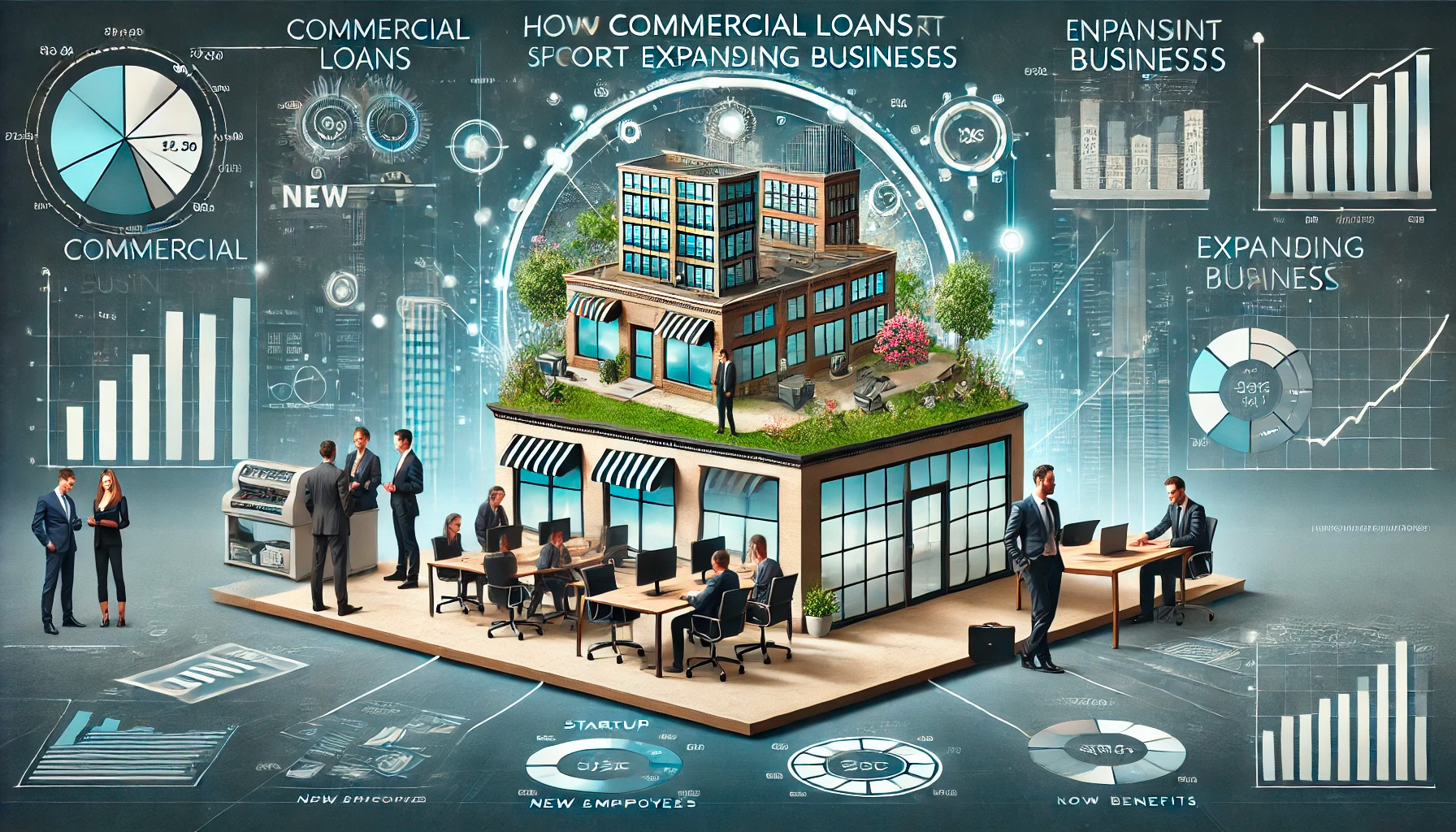
The Role of Commercial Loans in Financing Startups and Expanding Businesses
Commercial loans play a pivotal role in the journey of entrepreneurs and business owners. From launching startups to scaling established companies, these financial tools provide the essential capital needed to drive growth and innovation. By bridging the gap between ambition and financial capability, commercial loans enable businesses to achieve their goals and secure long-term success.
Financing the Birth of Startups
Starting a business requires significant upfront investment. Entrepreneurs need to secure office space, purchase equipment, develop products, hire staff, and market their offerings—all before generating substantial revenue. For many, personal savings or contributions from family and friends are insufficient to cover these initial expenses.
Commercial loans step in to provide the financial foundation for startups. These loans offer entrepreneurs the resources they need to turn their ideas into viable businesses. With access to capital, startups can invest in high-quality infrastructure, hire talented employees, and launch effective marketing campaigns. This initial support helps businesses establish a strong foothold in their industries and build a foundation for future growth.
Bridging Cash Flow Gaps
For startups, cash flow management is often one of the most significant challenges. Inconsistent revenue streams, delayed payments from clients, and seasonal fluctuations can strain finances and hinder operations. Commercial loans offer a solution by providing short-term funding to cover operational expenses and maintain liquidity.
Lines of credit, for example, allow businesses to access funds as needed, ensuring they can pay suppliers, manage payroll, and maintain inventory levels. This financial stability enables startups to focus on growth and customer satisfaction without worrying about immediate cash flow constraints.

Supporting Expansion for Established Businesses
As businesses grow, so do their financial needs. Expansion often involves opening new locations, increasing production capacity, entering new markets, or launching additional product lines. These initiatives require significant capital investments, which can strain even the most successful businesses.
Commercial loans provide the resources needed to execute expansion plans without depleting cash reserves. For instance, businesses can use real estate loans to purchase or lease new facilities, equipment financing to upgrade machinery, or term loans to fund large-scale projects. By spreading the cost over manageable payments, these loans enable businesses to pursue growth opportunities without sacrificing financial stability.
Encouraging Innovation and Competitiveness
Innovation is at the heart of business success, but developing new products, services, or technologies often requires substantial investment. Commercial loans empower businesses to fund research and development, test prototypes, and bring innovative solutions to market.
By enabling businesses to stay ahead of industry trends and meet evolving customer demands, commercial loans foster competitiveness. This ability to innovate and adapt not only strengthens a company’s market position but also ensures long-term sustainability in a rapidly changing economic landscape.
Building Credit and Financial Credibility
For startups and small businesses, establishing a strong credit history is essential for accessing future financing. Responsible borrowing and repayment of commercial loans demonstrate financial reliability, enhancing a business’s reputation with lenders.
A solid credit profile opens the door to better loan terms, larger amounts, and faster approvals in the future. This credibility is especially valuable for businesses planning multiple growth initiatives, as it ensures access to the resources needed to execute their strategies effectively.
Tailored Solutions for Diverse Needs
One of the most significant advantages of commercial loans is their adaptability. Lenders offer a variety of loan types to meet the unique needs of different businesses. From term loans and lines of credit to SBA loans and equipment financing, entrepreneurs can choose the option that best aligns with their objectives.
For example, a startup may opt for an SBA loan due to its favorable terms and government backing, while an established business might choose a line of credit to manage cash flow fluctuations. This flexibility ensures that businesses can access the right financial solution for their specific circumstances.

Overcoming Barriers to Entry
Many entrepreneurs face barriers to entry, such as high startup costs, limited access to capital, or stringent credit requirements. Commercial loans help overcome these obstacles by providing the funding needed to navigate these challenges.
Startups can use loans to cover licensing fees, secure inventory, or invest in marketing, ensuring they can compete effectively from the outset. For businesses in competitive industries, this financial support can make the difference between success and failure.
Promoting Growth Through Strategic Investments
Strategic investments are crucial for business growth, whether it’s expanding operations, acquiring competitors, or improving infrastructure. Commercial loans enable businesses to make these investments with confidence, knowing they have the financial backing to support their plans.
For instance, a business looking to expand internationally may require funding to establish a local presence, navigate regulatory requirements, and launch targeted marketing campaigns. A commercial loan provides the capital needed to execute this strategy effectively, ensuring the business can thrive in new markets.
Mitigating Risks with Financial Planning
While commercial loans offer significant benefits, they also come with responsibilities. Borrowers must carefully evaluate their financial position and repayment capacity to avoid overextending their resources. A well-structured loan plan ensures that businesses can manage their debt while achieving their goals.
Lenders often provide guidance and support, helping borrowers assess their needs and choose the most appropriate loan type. By working closely with lenders, businesses can develop a financing strategy that minimizes risks and maximizes benefits.
Conclusion: Empowering Success Through Commercial Loans
Commercial loans are more than just a financial tool—they are a catalyst for innovation, growth, and long-term success. By providing the capital needed to overcome challenges and seize opportunities, these loans empower businesses to thrive in competitive markets.
Whether you’re launching a startup or expanding an established enterprise, commercial loans offer the flexibility, support, and stability needed to achieve your goals. With careful planning, responsible borrowing, and a clear vision, businesses can leverage these loans to unlock their full potential and build a brighter future.
By understanding the role of commercial loans and tailoring them to your specific needs, you can ensure that your business is well-positioned for growth and success in an ever-evolving marketplace.
